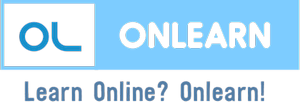Reading Comprehension. The Q&A Session.
The question and answer component of a presentation could be the most important part. This is where you can make sure that your audience has understood your message or idea, help to deal with any doubts that they might have and expand on anything that they would like to know more about. We spoke to four experienced speakers and presenters about what they thought was important in a Q&A session.


Andy is an educational consultant from Glasgow.
“The goal of a good Q&A session is to ensure that everybody understands my target information. With every question that I’m asked I try to paraphrase the question to make sure that I’ve understood it correctly, pause for a moment to give myself a bit of time to think about how to answer and then answer the question as clearly and directly as possible.
When I’ve finished my answer I ask the audience member who asked it if that answers their question adequately to check that they got the answers that they needed and move on. After doing a presentation a few times you will know what questions people usually ask and what areas they have difficulty with so you can clarify these issues and anticipate the questions so as to give well developed answers in future presentations.
I hate it when presenters or educators don’t want to or don’t know how to answer a question and avoid it. sometimes they talk about irrelevant things, sometimes they give such a complicated answer with so much jargon that the person who asks the questions is intimidated into silence! That’s the last thing I want to do!”

Brian is an executive with a brokerage firm in New York.
“For me, confidence is key. If people don’t trust you or feel that you are an authority in what you’re presenting they won’t be responsive to your message. Stand or sit straight, shoulders back. When someone asks you a question, look them in the eye and smile, this will give the impression that you are friendly, open, honest and will make them more receptive to your answer.

Charles is an activist in local politics in Bristol.
“When people ask me a question, the first thing that I have to do is consider their motives. Sometimes people are asking a question in good faith because they want to know something, but more often than not they have an ulterior motive and want to trick you into saying something, make you look silly or make themselves look good.
I have to “hedge” what I’m saying sometimes, answering questions indirectly or hypothetically
I tend to have prepared responses to most questions that I repeat verbatim. What I say could be repeated over and over again on the radio or in the newspapers. I have to be very careful with the words that I use, so don’t like to improvise much!

Dominique is a marketing consultant from London.
“A lot of the time people ask me questions that I can’t possibly know the answer to, and you know what? It’s okay to not know everything! If someone asks a question that I can’t answer in that moment I thank them for the question and explain that I will get find out and let them know.
I think that if anything, offering to look into something and report back to people when you have the correct and accurate information makes you look more credible than giving an insubstantial or incomplete answer.”
